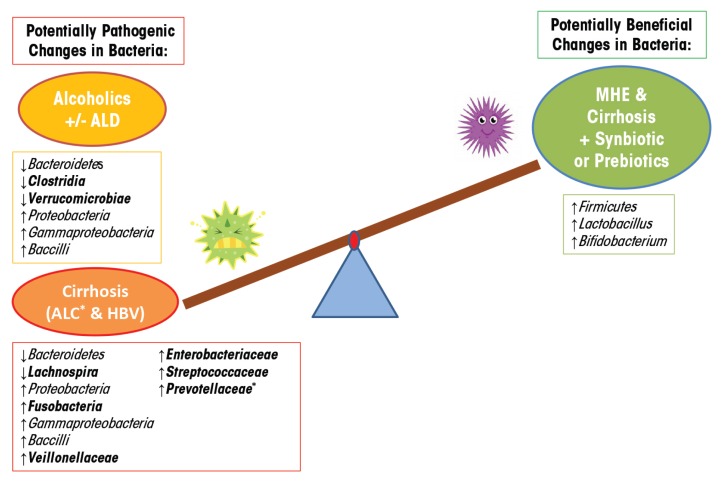Figure 3.
Alcohol-induced imbalances in the microbiome of the gastrointestinal tract (dysbiosis) have been associated with promoting potentially pathogenic changes in bacteria in alcoholics with and without liver disease and in patients with cirrhosis caused by hepatitis B or alcohol. Both alcoholic and cirrhosis patients demonstrate similar dysbiotic microbiota changes, except for the bacteria indicated, suggesting that these dysbiotic bacterial differences could contribute to liver disease or may be a biomarker indicating liver disease. Using synbiotics and prebiotics to treat Minimal Hepatic Encephalopathy patients with cirrhosis, significantly improved their GIT microbiota, suggesting that the same treatment may benefit patients with alcohol-induced dysbiosis.

